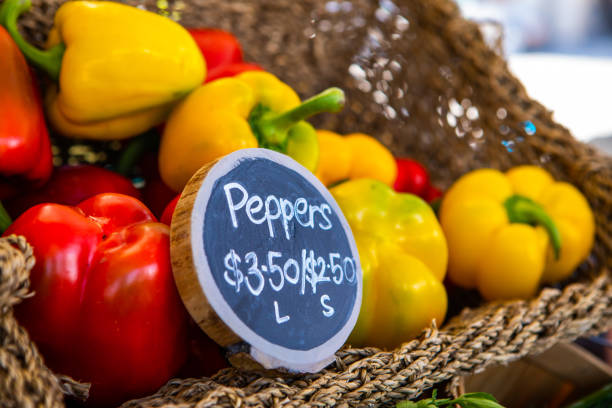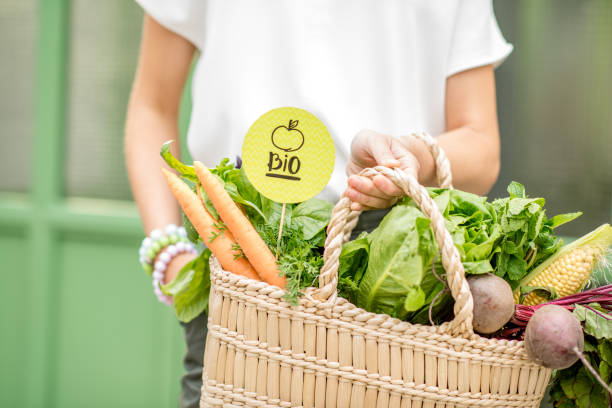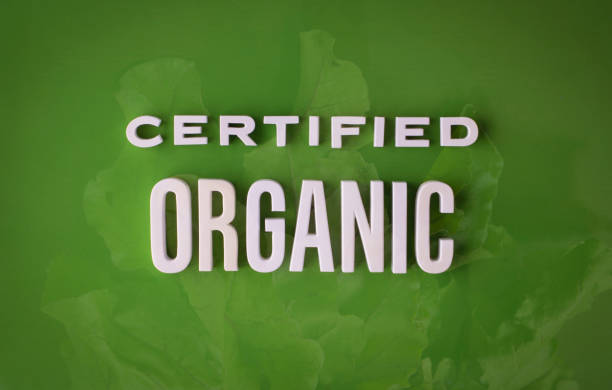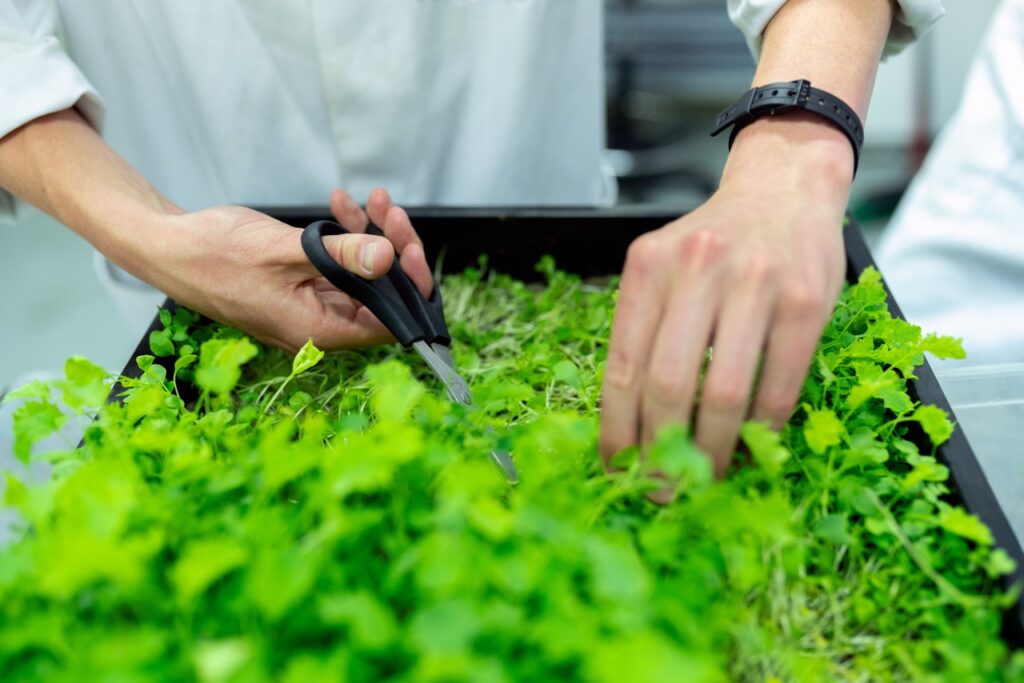What to Eat and Drink
What Are Sustainable Foods
The concept of sustainable cuisine has grown in popularity as environmental concerns become more important in the world. But what exactly constitutes sustainable foods? These are food products that are produced, processed, and eaten in ways that reduce environmental damage, benefit local communities, and maintain the long-term stability of our food systems.
Sustainable foods are more than a passing fad; they represent an essential movement toward more ethical and responsible food use. Choosing sustainable foods helps to reduce greenhouse gas emissions, save water and land resources, and protect biodiversity. Furthermore, sustainable foods frequently stress fair labor standards and support the welfare of farmers and workers.
Sustainable foods take into account the complete food production chain, from farm to table. They consider issues such as farming techniques, pesticide and fertilizer use, transportation methods, packaging materials, and waste management. Making informed dietary choices can help our world achieve a more sustainable future.

Why Sustainable Foods are Important
Sustainable foods play an important part in tackling today’s environmental concerns. Unsustainable food production practices cause deforestation, soil degradation, water pollution, and biodiversity loss. By adopting sustainable foods, we may reduce these negative consequences and establish a more balanced and harmonious relationship with our earth.
Reducing Greenhouse Gas Emissions
One key advantage of sustainable foods is their ability to reduce greenhouse gas emissions. Industrial agriculture and livestock production are significant contributors to climate change, emitting massive amounts of CO2, methane, and nitrous oxide. Sustainable farming approaches, such as organic and regenerative farming, prioritize soil health, crop rotation, and natural fertilizers to sequester carbon and lower emissions.
Conserving Water and Land Resources
Sustainable food production strategies emphasize the optimal use of water and land resources. Conventional farming frequently relies heavily on irrigation, resulting in water scarcity and aquifer depletion. Sustainable agricultural approaches, such as agroforestry and permaculture, help to conserve water by improving soil structure and water retention capacity. Furthermore, sustainable methods seek to reduce land degradation, safeguard ecosystems, and maintain biodiversity.
Protecting Biodiversity
Sustainable foods are critical for sustaining biodiversity. Monocultures, or huge areas dedicated to growing a single crop, are frequently used in industrial agriculture. This method endangers biodiversity by diminishing habitat diversity and raising the risk of pests and illnesses. Sustainable farming, on the other hand, prioritizes crop diversity, companion planting, and habitat protection, resulting in a more resilient and balanced ecosystem.

The Environmental Impact of Unsustainable Food Production
The environmental consequences of unsustainable food production are enormous and far-reaching. From deforestation to water pollution, our present food systems put enormous strain on the environment. Understanding these consequences is critical for appreciating the significance of switching to sustainable food choices.
Deforestation and Habitat Destruction
The growth of agricultural land, particularly for animal production, is a major driver of deforestation and habitat degradation. Forests are cleared to provide grazing pastures or to cultivate feed crops like soybeans and palm oil. This devastation not only contributes to climate change, but it also causes biodiversity loss, as many species rely on forests for existence.
Soil Degradation and Erosion
Unsustainable farming methods, such as the overuse of synthetic fertilizers and pesticides, can deteriorate soil quality over time. These chemicals damage the soil’s natural ecosystem, destroying beneficial bacteria and diminishing fertility. Furthermore, intensive agricultural methods can contribute to soil erosion because the land is frequently left bare and exposed to elements such as wind and water.
Water Pollution and Depletion
Agricultural runoff carrying pesticides and fertilizers is a major source of water contamination. These contaminants contaminate rivers, lakes, and groundwater, endangering human health and aquatic ecosystems. Furthermore, inappropriate irrigation practices can cause water scarcity, deplete freshwater supplies, and disrupt ecosystems.

Health Benefits of Sustainable Foods
Aside from environmental advantages, sustainable foods have several health benefits. We may nourish our bodies while limiting our exposure to hazardous toxins by eating sustainably produced and processed foods.
Nutrient-rich and Chemical-free
Sustainable farming approaches focus soil health, which has a direct impact on crop nutritional content. Organically farmed foods, for example, typically include more vitamins, minerals, and antioxidants than conventionally grown counterparts. Furthermore, sustainable foods are free of industrial pesticides and genetically modified organisms (GMOs), which reduces the possible health concerns linked with these chemicals.
Reduced Exposure to Antibiotics and Hormones
In industrial livestock production, antibiotics and hormones are frequently utilized to enhance growth and avoid disease outbreaks. However, abuse of antibiotics contributes to the spread of antibiotic-resistant bacteria, posing a serious threat to public health. Sustainable animal husbandry practices stress the ethical use of antibiotics and hormones, reducing the likelihood of these drugs entering the food chain.
Support for Local and Artisanal Producers
Sustainable foods frequently emphasize the value of supporting local and artisanal suppliers. By purchasing locally sourced and small-scale items, we can help our communities’ economic well-being. Local and artisanal foods are also more fresh and of higher quality because they are generally made utilizing traditional and time-honored methods.

Types of Sustainable Foods
Sustainable foods encompass a diverse set of items and methods. There are several methods to include sustainability into our diets, including organic fruits and vegetables, locally produced meats, and seasonal products.
Organic Foods
Organic foods are produced without the use of synthetic pesticides, fertilizers, or genetically modified organisms. This approach prioritizes soil fertility, biodiversity, and animal welfare. Choosing organic foods allows us to reduce our exposure to dangerous chemicals while also supporting environmentally responsible agriculture practices.
Locally Sourced Foods
Choosing locally sourced foods lowers the carbon footprint associated with long-distance transportation. Local goods are typically fresher since they spend less time in transit and benefit local farmers and businesses. Furthermore, buying locally supports regional food systems and reduces reliance on global supply lines.
Seasonal Foods
Eating seasonally involves ingesting foods that are naturally available at a specific time of year. Seasonal meals are often more tasty, nutritious, and cost-effective. They also decrease the need for energy-intensive storage and transportation methods because they are grown and harvested locally under ideal conditions.

How to Incorporate Sustainable Foods into Your Diet
Adding sustainable foods to your diet does not have to be complex. With a few easy modifications, you can significantly improve both your health and the environment.
Eat More Plant-based Meals
Reducing our consumption of animal products is one of the most effective methods to promote sustainable food systems. Plant-based diets have been linked to a variety of health benefits and have a lower environmental impact than meat-heavy diets. Begin by adding more fruits, vegetables, legumes, and whole grains to your diet.
Choose Sustainable Protein Sources
If you do consume animal products, choose those that are sustainably produced and ethically sourced. When purchasing meat, poultry, or dairy products, look for labels such as “organic,” “grass-fed,” or “certified humane. Consider broadening your protein sources by including plant-based options such as tofu, tempeh, or lentils.
Shop at Farmers’ Markets and Local Food Cooperatives
Farmers’ markets and local food cooperatives are wonderful sources for fresh, seasonal, and locally produced goods. These direct-to-consumer networks enable you to communicate with farmers and producers, inquire about their farming practices, and support local agriculture. Explore your neighborhood to find out when and where these markets take place.

Sustainable Food Certifications and Labels
Navigating the world of sustainable foods can be difficult, since there are several certifications and labels to consider. Understanding what these labels represent might help you make better decisions when shopping for sustainable foods.
USDA Organic
The USDA Organic label confirms that the food product was produced in accordance with strict organic farming standards. These regulations forbid the use of synthetic pesticides, fertilizers, GMOs, and antibiotics in cattle agriculture. Look for the USDA Organic label on fruits, vegetables, meat, dairy, and processed foods.
Fair Trade
Fair Trade accreditation guarantees that farmers and workers receive fair compensation and work in safe and ethical conditions. Coffee, tea, cocoa, bananas, and other fair trade products are frequently sourced from developing countries. Fair Trade products promote social and economic justice in the global food system.
MSC Certified
The Marine Stewardship Council (MSC) certification indicates seafood items derived from sustainable fishing. The MSC mark guarantees that the fishery operates within sustainable boundaries, has minimal environmental impact, and supports healthy fish populations. Look for the MSC Certified logo when purchasing fish.

Tips for Shopping for Sustainable Foods
When it comes to shopping for sustainable foods, a few easy guidelines can help you make informed decisions and have a beneficial influence.
Read Labels and Certifications
Take the time to examine food labels and certifications. Search for organic certifications, fair trade labels, and other sustainability indicators. Familiarize yourself with the significance behind these labels and select products that reflect your ideals.
Support Local Farmers and Producers
Whenever possible, select locally made foods. Visit farmers’ markets, participate in community-supported agriculture (CSA) programs, or consider joining a food cooperative. Supporting local farmers and producers reduces the carbon footprint of long-distance transportation while also contributing to your local economy.
Minimize Packaging Waste
Consider the packaging of the food items you buy. Choose products with minimum packaging or items packed in environmentally friendly materials. Bring your own reusable bags and containers when shopping to help reduce single-use plastic trash.
Conclusion
The future of sustainable foods looks bright, as more people understand the value of choosing ethical and responsible food choices. By eating sustainable foods, we can help to make the world a healthier place, support local communities, and enhance our personal health.
Consumers have the capacity to effect change by making informed food choices. We can lessen our environmental impact, encourage fair labor standards, and improve the well-being of farmers and workers by purchasing sustainable foods.
The journey toward a more sustainable food system may be difficult, but it is worthwhile. By adding sustainable foods into our diets, supporting sustainability programs and organizations, and campaigning for change, we can create a future in which our food systems nourish both people and the environment.
Let us all embrace sustainable foods and work together to create a healthier, more sustainable future.


